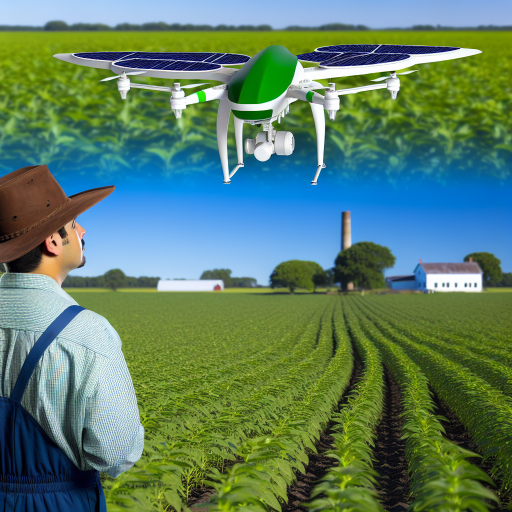Introduction:
Grape breeding and genetic research are crucial aspects of the grape industry.
These practices help in the development of new grape varieties with desired traits.
The wine industry greatly benefits from grape breeding and genetic research.
Improved grape varieties lead to better quality wines and increased production yields.
Understanding the genetics of grapes allows for targeted breeding programs.
This results in grapes that are resistant to diseases, pests, and environmental stressors.
Grape breeders use techniques like crossbreeding and molecular markers to select desired traits.
Genetic research helps in uncovering the genetic makeup of different grape varieties.
By studying the genes responsible for key traits, breeders can create superior grapes.
In the wine industry, unique and high-quality grapes are highly valued.
Grape breeding and genetic research play a crucial role in meeting consumer demands.
These practices also contribute to sustainability by reducing the need for pesticides.
Overall, grape breeding and genetic research are essential for the continued growth of the wine industry.
History of grape breeding:
Grape breeding has a long and fascinating history that dates back to ancient times.
In the early days, grape growers relied on simple methods to develop new grape varieties.
These methods were based on observation and selection of naturally occurring variations in vines.
One of the earliest methods used by grape growers was simply saving seeds from the best-performing vines and planting them to see what traits would be expressed in the new plants.
This method, known as seedling selection, was a hit or miss approach that relied heavily on luck.
As time went on, grape growers began to realize the limitations of seedling selection.
They sought more controlled methods of breeding grapes.
Transform Your Career Today
Unlock a personalized career strategy that drives real results. Get tailored advice and a roadmap designed just for you.
Start NowThis led to the development of techniques such as crossbreeding, where two different grape varieties are intentionally crossed to create new hybrids with desirable traits from each parent.
The evolution of modern breeding techniques has revolutionized the grape industry.
These techniques allow for the creation of new grape varieties that are disease-resistant, have improved flavor profiles, and are better suited to specific growing conditions.
Advanced methods include marker-assisted selection and genetic modification.
Marker-assisted selection involves using molecular markers to identify specific genes associated with desirable traits.
This approach allows breeders to more effectively select for those traits in their breeding programs.
Consequently, this has greatly accelerated the breeding process, making it faster and more precise.
Genetic modification, on the other hand, involves directly altering the DNA of a grape plant to introduce new traits or enhance existing ones.
While this technique is controversial, it has the potential to create grape varieties with novel characteristics that may be beneficial for the industry.
The history of grape breeding is a testament to human ingenuity and perseverance.
By combining traditional methods with cutting-edge technologies, grape breeders are continuing to push the boundaries of what is possible in the world of grape cultivation.
- Early methods used by grape growers
- Evolution of modern breeding techniques
Improved Grape Varieties with Desired Traits
One of the key benefits of grape breeding is the ability to develop new varieties with specific traits that are desirable to growers, winemakers, and consumers.
This can include traits such as improved taste, color, size, and yield.
Resistance to Diseases and Pests
Grape breeding also plays a crucial role in developing varieties that are resistant to common diseases and pests that can devastate vineyards.
By breeding for disease resistance, growers can reduce their reliance on chemical pesticides and protect their crops in a more sustainable way.
Adaptation to Different Climates and Soil Types
Another major benefit of grape breeding is the ability to develop varieties that can thrive in a wider range of climates and soil types.
This is particularly important as climate change continues to impact growing conditions around the world.
By breeding grapes that are more adaptable, growers can ensure a more stable and resilient crop year after year.
The benefits of grape breeding and genetic research are vast and far-reaching.
By continuously striving to improve grape varieties, researchers and growers can ensure a more sustainable and resilient future for the grape industry.
Transform Your Career Today
Unlock a personalized career strategy that drives real results. Get tailored advice and a roadmap designed just for you.
Start NowFind Out More: The Future of Food Science: Trends to Watch
Genetic research in grape breeding
Understanding the genetic makeup of grapes is crucial for effective breeding programs.
Scientists use molecular markers for selection to improve desired traits in grapes.
Importance of genetic research
- Enhances breeding efficiency
- Accelerates development of new varieties
- Improves disease resistance
- Enhances crop yield
- Enhances fruit quality
Techniques in genetic research
- Genotyping
- Phenotyping
- DNA sequencing
- Gene editing
Applications of genetic research in grape breeding
- Developing drought-resistant varieties
- Enhancing pest resistance
- Improving fruit flavor
- Increasing sugar content
- Enhancing color intensity
Genetic research plays a vital role in shaping the future of grape breeding and cultivation.
Uncover the Details: Extension Agents’ Role in Food Systems
Long breeding cycles
One of the major challenges in grape breeding is the long breeding cycles that are required to develop new grape varieties.
It can take several years, sometimes even decades, to cultivate a new variety that meets the desired characteristics.
This lengthy process can be a major hindrance in the advancement of grape breeding research.
Difficulty in maintaining genetic diversity
Another challenge in grape breeding is the difficulty in maintaining genetic diversity within grape populations.
As breeding programs focus on developing new varieties with specific traits, there is a risk of reducing the overall genetic diversity of grape vine populations.
This can make the grape vines more susceptible to diseases and environmental changes, ultimately limiting the adaptability of the grape varieties.
Ethical concerns surrounding genetic modification
Genetic modification is a controversial topic in grape breeding and genetic research.
While genetic modification can offer benefits such as disease resistance and improved quality, there are ethical concerns surrounding the use of GM techniques in grape breeding.
Some consumers have reservations about consuming genetically modified grapes, which can impact the marketability of GM grape varieties.
Grape breeding and genetic research present several challenges that need to be addressed in order to advance the field and develop new grape varieties.
By addressing these challenges, researchers can work towards creating grape varieties that are resilient, flavorful, and sustainable for future generations.
Gain More Insights: Effective Communication in Agricultural Marketing
Recent advancements in grape breeding:
Advancements in grape breeding have accelerated in recent years, driven by innovative technologies and methods.
Two notable advancements that have revolutionized the field are the use of CRISPR technology for gene editing and the integration of data science in breeding programs.
CRISPR Technology for Gene Editing:
The CRISPR-Cas9 system has opened up new possibilities for breeding grapes with specific traits by allowing precise modification of the grapevine genome.
Transform Your Career Today
Unlock a personalized career strategy that drives real results. Get tailored advice and a roadmap designed just for you.
Start NowResearchers can now target and edit specific genes associated with desirable traits, such as disease resistance or enhanced flavor profiles.
This technology offers a faster and more precise way to introduce beneficial genetic changes into grape varieties without the need for traditional breeding methods, which can take years to achieve desired results.
By using CRISPR technology, breeders can bypass the lengthy process of crossbreeding and directly edit the grapevine’s DNA to achieve desired traits.
Integration of Data Science in Breeding Programs:
Data science plays a crucial role in modern grape breeding programs by enabling breeders to analyze vast amounts of genomic and phenotypic data to identify valuable genetic markers associated with desirable traits.
With the help of advanced computational algorithms, breeders can predict which grape varieties are more likely to exhibit specific traits based on their genetic makeup.
By integrating data science into breeding programs, breeders can speed up the selection process, identify promising cultivars early on, and optimize breeding strategies to develop new grape varieties with improved characteristics.
This data-driven approach allows breeders to make informed decisions and maximize the efficiency of grape breeding efforts.
Recent advancements in grape breeding, such as the use of CRISPR technology for gene editing and the integration of data science in breeding programs, have significantly enhanced the efficiency and precision of grape breeding.
These cutting-edge technologies hold great promise for the future of grape breeding, allowing breeders to develop new varieties with superior traits to meet the evolving needs of consumers and the industry.
Gain More Insights: Top Environmental Challenges in Agriculture Today

Future prospects in grape breeding:
As we look to the future of grape breeding and genetic research, there are exciting possibilities on the horizon.
One of the key areas of focus will be the development of new grape varieties with unique and distinctive flavors.
This could open up a whole new world of options for winemakers and consumers alike.
Potential for developing new grape varieties with unique flavors
Traditional grape varieties have their own established flavors and characteristics, but there is always room for innovation and improvement.
By applying advanced breeding techniques and genetic research, breeders can create grapes with novel flavor profiles that could revolutionize the wine industry.
Imagine a grape variety that combines the sweetness of a Muscat with the acidity of a Chardonnay, or a grape that has hints of tropical fruits like mango and pineapple.
These new flavors could inspire winemakers to experiment with exciting blends and unique wine styles that appeal to a broader audience.
Moreover, breeding for unique flavors can also lead to the development of grapes that are better suited for specific types of wine production.
For example, a grape variety that naturally exhibits spicy notes could be perfect for making bold red wines, while a grape with floral aromas might be ideal for producing delicate white wines.
Climate change considerations in breeding resilient grapes
Another important aspect of future grape breeding will be addressing the challenges posed by climate change.
Transform Your Career Today
Unlock a personalized career strategy that drives real results. Get tailored advice and a roadmap designed just for you.
Start NowAs temperatures rise and weather patterns become more unpredictable, it is essential to develop grape varieties that can withstand these environmental changes and continue to thrive in challenging conditions.
Breeding for resilience involves selecting traits that make grapes more adaptable to changing climates, such as resistance to drought, heat, pests, and diseases.
By incorporating these traits into new grape varieties, breeders can help ensure the sustainability of vineyards and the longevity of the wine industry.
Furthermore, resilient grapes can also have a positive impact on the environment by reducing the need for chemical inputs like pesticides and fungicides.
This, in turn, leads to healthier vineyards, cleaner wines, and a more sustainable agricultural system.
The future of grape breeding and genetic research holds immense potential for the development of new grape varieties with unique flavors and resilience to climate change.
By continuing to push the boundaries of innovation and sustainability, breeders can shape the future of the wine industry and delight consumers with exciting new wine experiences.
Increased Production of High-Quality Wines
Through grape breeding and genetic research, winemakers have been able to develop grape varieties that are better suited to different climatic conditions and soil types.
This has led to increased yields of high-quality grapes, which in turn has enabled the production of more premium wines.
By breeding grapes with desirable traits such as disease resistance, improved flavor profiles, and better sugar levels, winemakers can ensure that the grapes used in wine production are of the highest quality.
This ultimately translates to a wider variety of wines for consumers to choose from, each with its own unique characteristics and flavors.
Market Competitiveness and Consumer Preferences
Another significant impact of grape breeding on the wine industry is the heightened market competitiveness and the ability to cater to evolving consumer preferences.
By developing new grape varieties that produce wines with distinct flavors and characteristics, winemakers can differentiate their products in a crowded marketplace.
Consumers today are increasingly interested in exploring unique and innovative wine options.
Grape breeding allows winemakers to create wines that appeal to a broader range of tastes, offering something for every preference.
This not only helps wineries stand out in the market but also fosters a loyal customer base that values diversity and quality.
Furthermore, grape breeding also plays a crucial role in sustainability practices within the wine industry.
By developing grape varieties that are more resilient to pests and diseases, winemakers can reduce the need for chemical interventions.
This leads to a more environmentally friendly and sustainable production process.
Advancements in grape breeding and genetic research have revolutionized the wine industry.
Transform Your Career Today
Unlock a personalized career strategy that drives real results. Get tailored advice and a roadmap designed just for you.
Start NowThese developments have led to the creation of new grape varieties with improved characteristics.
The research has allowed breeders to develop grapes that are resistant to diseases and pests.
This has reduced the need for chemical pesticides in vineyards, making grape production more sustainable.
Furthermore, genetic research has enhanced the quality of grapes used for winemaking.
By identifying specific genes responsible for flavor compounds, researchers have been able to create grapes with desirable aroma and taste profiles.
Grape breeding and genetic research play a crucial role in ensuring the sustainability and competitiveness of the wine industry.
Continuous investment in research and development is vital for the future growth and success of the industry.
Importance of Research in Wine Production
In support of ongoing research initiatives, stakeholders are encouraged to drive innovation.
Investment in grape breeding and genetic research can ensure a vibrant and sustainable future for the wine industry.
By recognizing the significance of these efforts, we can maintain the industry’s global competitiveness.
Additional Resources
Grape Genetics Research Unit (GGRU) : USDA ARS
USDA and Cornell University Break Ground on National Grape …
[E-Books for Sale]
The Big Book of 500 High-Paying Jobs in America: Unlock Your Earning Potential
$19.99 • 500 High-Paying Jobs • 330 pages
Explore 500 high-paying jobs in America and learn how to boost your career, earn more, and achieve success!
See All 500 High-Paying Jobs of this E-Book
1001 Professions Without a Degree: High-Paying American Jobs You Can Start Now
$19.99 • 1001 Professions Without a Degree • 174 pages
Discover 1001 high-paying jobs without a degree! Unlock career tips, skills, and success strategies for just $19.99!




